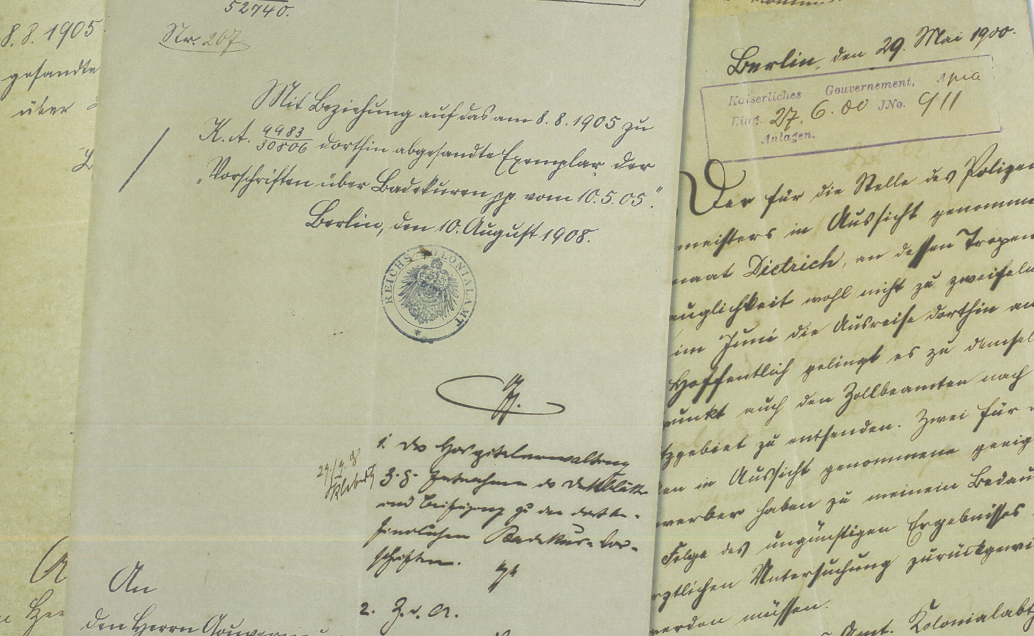Germans arrived in Samoa in around 1840, when the Hamburg-based Godeffroy company relocated its main Pacific trading base from Valparaiso in Chile to the Samoan capital, Apia. German sailors and merchants settled here, married Samoan women and helped develop the island. A German school, postal agency and consulate were fixtures of everyday life in Apia long before Western Samoa officially became a German colony in 1900.
Samoa was the last colony acquired by the German Reich, and this had a number of very positive effects for the country. Firstly, lessons had been learnt from past mistakes. Above all, however, the Governor, Dr Wilhelm Solf, pursued a cautious, circumspect, paternalistic line in coordination with local advisers. Samoan autonomy in the villages was retained, in some cases even extended. The Samoans were allowed to use the land outside Apia. Samoan, not German, was the first language in schools.


